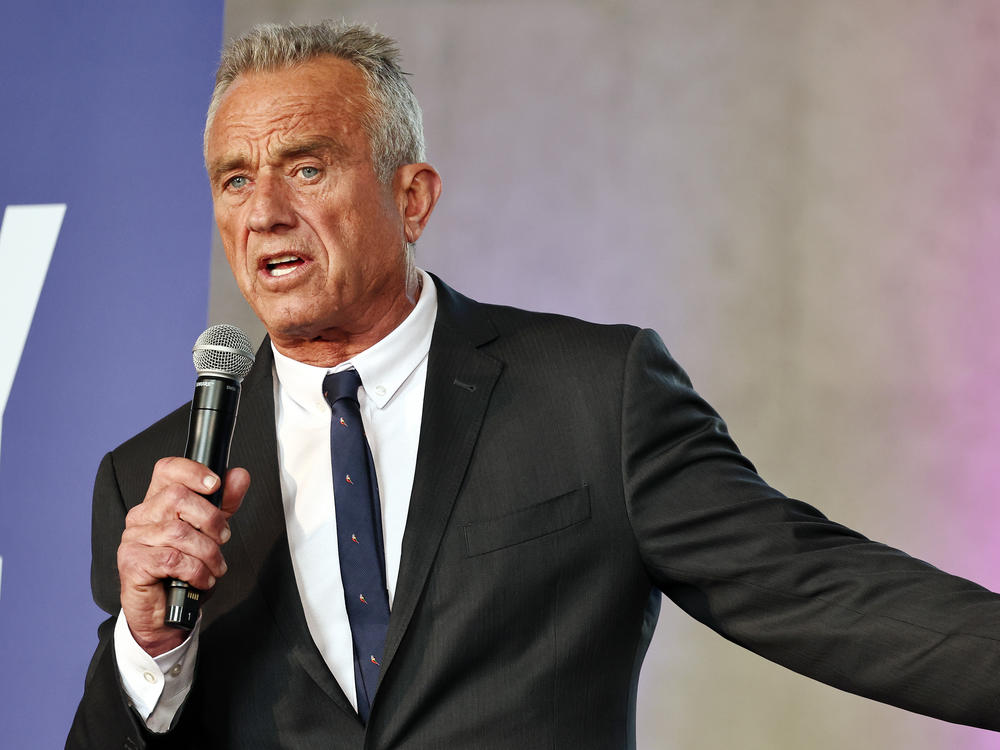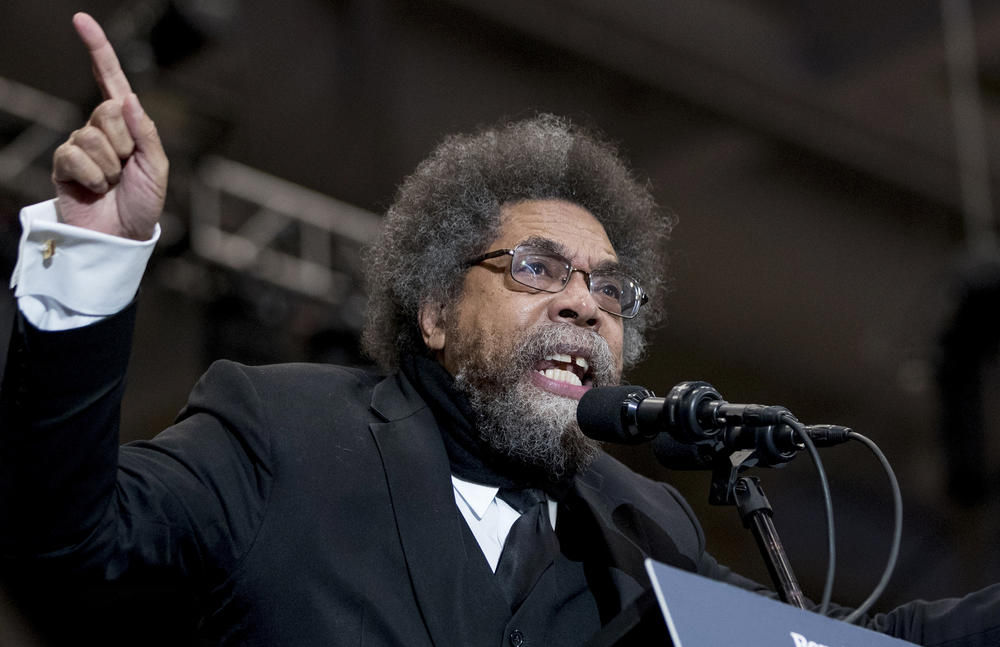Section Branding
Header Content
Some independent candidates start their own political parties to ease ballot access
Primary Content
Running for president isn't easy when you aren't part of one of the major political parties.
While Democrats and Republicans don't have to petition a state to appear on a ballot, independent and many third-party candidates do.
Running as an independent candidate can be particularly difficult because of high signature requirements — often on short timelines. And some states even limit which voters candidates can get signatures from.
For example, an independent candidate seeking a spot on Texas' 2024 ballot has about two months to gather 113,151 signatures of registered voters "who did not vote in the presidential primary of either party," according to state election officials.
There is a workaround to these kinds of rules, though: A candidate can start their own political party and run as a member of that party.
That's because states such as Arizona, Delaware, Florida, Hawaii, Mississippi, North Carolina and Texas make it significantly easier to get on the ballot as a minor-party candidate, compared with running as an independent candidate.
As a result, presidential candidates like anti-vaccine activist Robert F. Kennedy Jr. and progressive scholar Cornel West have decided to create their own political parties — the We the People party and the Justice for All Party, respectively — to get on the ballot in some states.
This month, the Kennedy campaign announced it had gathered enough signatures to put his We the People party on North Carolina's ballot this year.
In North Carolina, a political party only needs to gather more than 13,000 signatures of voters to get on the ballot. To run as an independent candidate in 2024, though, campaigns need to gather more than 83,000 signatures to qualify for the ballot.
West initially planned to run as a member of the Green Party. Running as a member of the long-established Green Party would have made the task of getting on state ballots across the U.S. much easier. But West ultimately decided not to seek the party's nomination. (His campaign says he has so far gotten on ballots in three states using other minor parties' access.)
Richard Winger, who publishes a monthly newsletter called Ballot Access News, said it's "irrational" that some states "make it much harder for an independent candidate to get on the ballot than for a new party."
"And the reason that's irrational is the whole point of ballot access restrictions is to keep the ballot from being too crowded," Winger said. "And an independent candidate doesn't affect the ballot much because it's just one guy or woman. But a new party could have a big impact on the ballot because the new party might run candidates for every single partisan office."
The purpose of minor parties
Elaine Kamarck, a senior fellow in governance studies and the director of the Center for Effective Public Management at the Brookings Institution, said it makes sense why independent candidates would use this workaround to get on the ballot.
But, Kamarck said, it's "sort of an abuse of the law."
She said political parties are not meant to be a reflection of one person's campaign or an empty vehicle to get one person on a ballot.
"We want, in a democracy, political parties to be able to form and run candidates," she said. "So, you know, I see why the states have done this.
However, Kamarck said what Kennedy and others are doing is creating parties that are not really meant to operate like most political parties.
"The problem is, this isn't real. No more than No Labels was real," she said, referring to the centrist group that had obtained ballot access in a number of states before dropping its proposal to run a presidential ticket. "This is not a reflection of a coherent group of people deciding to form a party and run in various offices."
In contrast, Kamarck said, the Green Party runs candidates up and down the ballot each year.
"They've run candidates for county commissioner. They've run candidates for Congress," she said. "In other words, they've consistently tried to participate in elections as parties do. This is sort of a scam that Kennedy is running, pretending all of a sudden that he's a political party."
The Kennedy campaign didn't respond to a request for comment.
Kamarck also said that higher thresholds for independent candidates are a practicality. She said the limits are meant to keep state ballots from getting overcrowded with various independent candidates and minor parties.
"You can't have ballots that have 13,000 people on them running for president," she said. "Can you imagine trying to vote, trying to find Joe Biden's name or Donald Trump's name in the list of 13,000 people?"
But Winger said it's ultimately not fair for states to make it significantly harder for independent candidates versus a minor party. So as long as states have those kinds of rules, he said, candidates are going to try to work around them.
"It's just stupid for states to make it harder for an independent," Winger said. "So I don't blame the candidates at all. They're just reacting to reality."
Correction
An earlier version of this story said candidates running with a party affiliation in North Carolina need to gather more than 10,000 signatures of party members. It's more than 13,000 signatures of voters.


